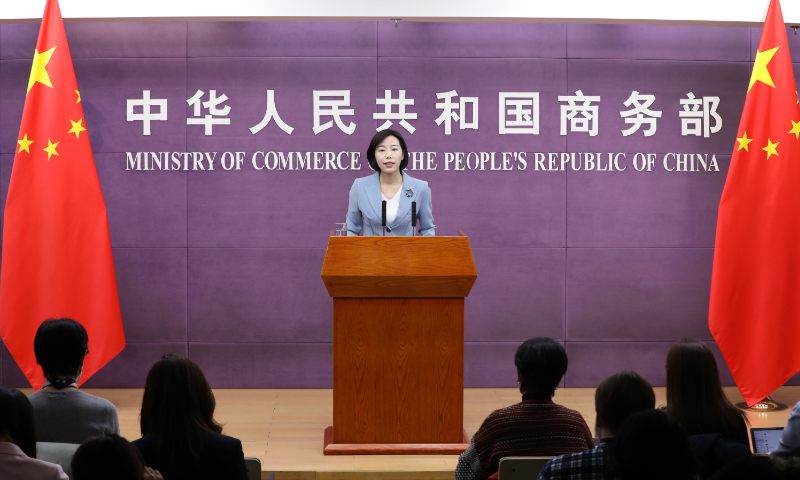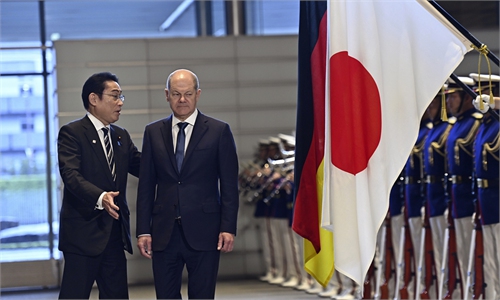
Shu Jueting, a spokesperson of the Ministry of Commerce of China Photo: VCG
China and Germany enjoy complementarity in economic structures and there is no such thing as one side relying on the other, Shu Jueting, a spokesperson for China's Ministry of Commerce (MOFCOM), said on Thursday.
Amid the current complex and volatile international environment, the world economy is struggling to recover. Instead of promoting disengagement, it is of greater significance for all countries and regions to promote practical cooperation with an open mind and expand common interests so as to achieve win-win results, Shu told the Global Times at a regular press conference in Beijing.
Accompanied by six ministers, German Chancellor Olaf Scholz went to Japan on Saturday, "looking at ways to reduce German dependence on Chinese raw materials," Reuters reported.
Japanese Prime Minister Fumio Kishida said Germany and Japan aimed to boost cooperation "in strategic areas including mineral resources, semiconductors and batteries, and to share our best practices to counter risks in order to build a resilient supply chain that is safe and sustainable," according to Reuters.
China and Germany are important trading partners for each other, and both sides' industrial and supply chains are deeply integrated. China has remained Germany's biggest trading partner for seven straight years, while Germany has been China's top trading partner in Europe for 48 consecutive years, Shu said.
China's outstanding investment in Germany and that of Germany in China has hit nearly $60 billion, she continued, noting that the continuous deepening of the bilateral economic and trade partnership makes a positive contribution to both countries' economic development and brings tangible benefits.
For instance, German chemical giant BASF inaugurated a new plant in Zhanjiang, South China's Guangdong Province in September 2022. The plant has an annual capacity of 60,000 tons of engineering plastics, bringing BASF's total capacity in the Asia-Pacific region to 420,000 tons.
As one of the major investors in the Chinese market, Germany saw its actualized investment grow 52.9 percent year-on-year in 2022, MOFCOM data showed.
China's total actual use of foreign investment grew 6.3 percent on a yearly basis in 2022.
The close economic ties between China and Germany are the result of globalization and market laws, Shu said, noting that China is willing to join hands with other countries including Germany to promote the healthy development of economic and trade relations, safeguard the stability of global supply chains and inject more certainty into global economic growth.

